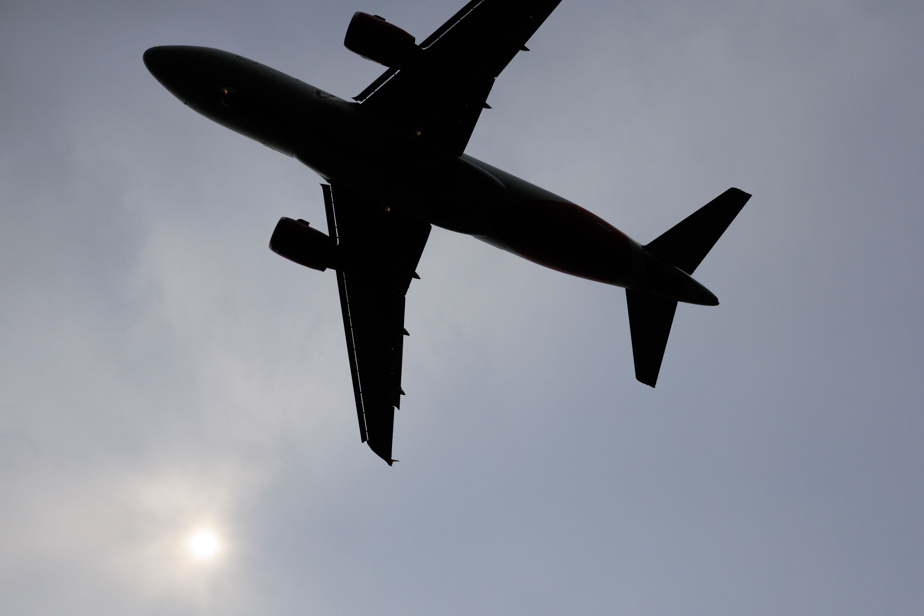Major Canadian airlines are asking some of their passengers who want compensation for delays or cancellations to sign non-disclosure agreements if they want to get their money.
Passengers who sue after a major flight delay or cancellation are often offered money. This supposed gesture of goodwill, however, has a catch: the passenger must sign a confidentiality agreement and drop the suit.
The Canadian Press contacted more than 20 Canadian airline customers who had to endure this scenario. Some rejected the offer, others accepted it. It appears the highest amount was a thousand dollars.
For example, Colleen Dafoe was scheduled to fly to the Dominican Republic in December 2022 with her husband and daughter to celebrate her 50th birthday, but the flight was canceled by WestJet.
The company offered to leave more than 10 days later, well after the couple’s leave dates, she said. Ms. Dafoe instead sued WestJet in small claims court. A company lawyer then offered them a full refund of the tickets on one condition: signing a non-disclosure agreement.
“My husband and I procrastinated. Part of us wanted us to stand our ground and refuse this confidentiality clause because airlines shouldn’t silence people when they don’t follow the rules,” says Dafoe.
However, the couple ended up accepting the agreement which prohibits them from revealing the amount they obtained.
WestJet says it “does not comment publicly on non-disclosure agreements, regardless of the cause or circumstances.”
His case appears to be part of a pattern deployed by Canada’s two major airlines, WetJet and Air Canada, which initially offered vouchers ranging from $150 to $300 to complaining customers. If they refuse the offer and go to court, the companies agree to reimburse them in full or may even offer them more money if a non-disclosure clause is added to the agreement.
Air Canada says these confidentiality clauses are common for resolving a dispute. She says she pays compensation when the client deserves it.
“These clauses are designed to protect the integrity of the negotiation process because every case is different. We cannot directly compare the regulations with each other,” wrote a company spokesperson, Peter Fitzpatrick, in an email.
According to Sylvie De Bellefeuille, budgetary and legal advisor at Option consommateurs, airlines mainly want to suppress unfavorable reactions, both on the internet and in court.
“They don’t want to set precedents. They don’t want to read on social media that someone has made a $500 deal with Air Canada,” she says.
Sometimes settlements are lower than the amounts claimed. Many clients don’t know they can refuse a first offer, says John Lawford, executive director of the Public Interest Advocacy Center.
“These strongest companies use great means,” he laments. It’s scandalous, it’s petty, it’s a bad sport. However, the amounts involved are not high. They want to muzzle critics. Silence is imposed on what could demonstrate other problems within the airlines. »
From a strictly business point of view, airlines are acting reasonably under the current rules, agrees Gabor Lukacs, president of Travelers Rights. He emphasizes that these clauses prevent the proliferation of cases before the courts.
“From an economic point of view, they are doing the right thing. Airlines are neither good nor bad. They simply opt for the optimal strategies in a game where the dice are loaded against the passengers. »
Under the Air Passenger Protection Regulations, airlines are required to provide passengers with either a refund or a rebooking, at the passenger’s option, in the event of a flight cancellation or extended delay due to an unrelated situation. of the airline’s wishes.
As of December 5, there were some 61,000 complaints pending before the Canadian Transportation Agency, which oversees the program. Many passengers prefer to avoid going through this process – which only takes place after the airline rejects a complaint – because of the wait, which can reach two years in some cases.
To speed up the process and convince passengers to deal with regulatory authorities rather than the courts, the Agency created “complaint resolution officer” positions. Around fifty people were hired. Their training began in mid-August. The office plans to hire 50 more people next year.
